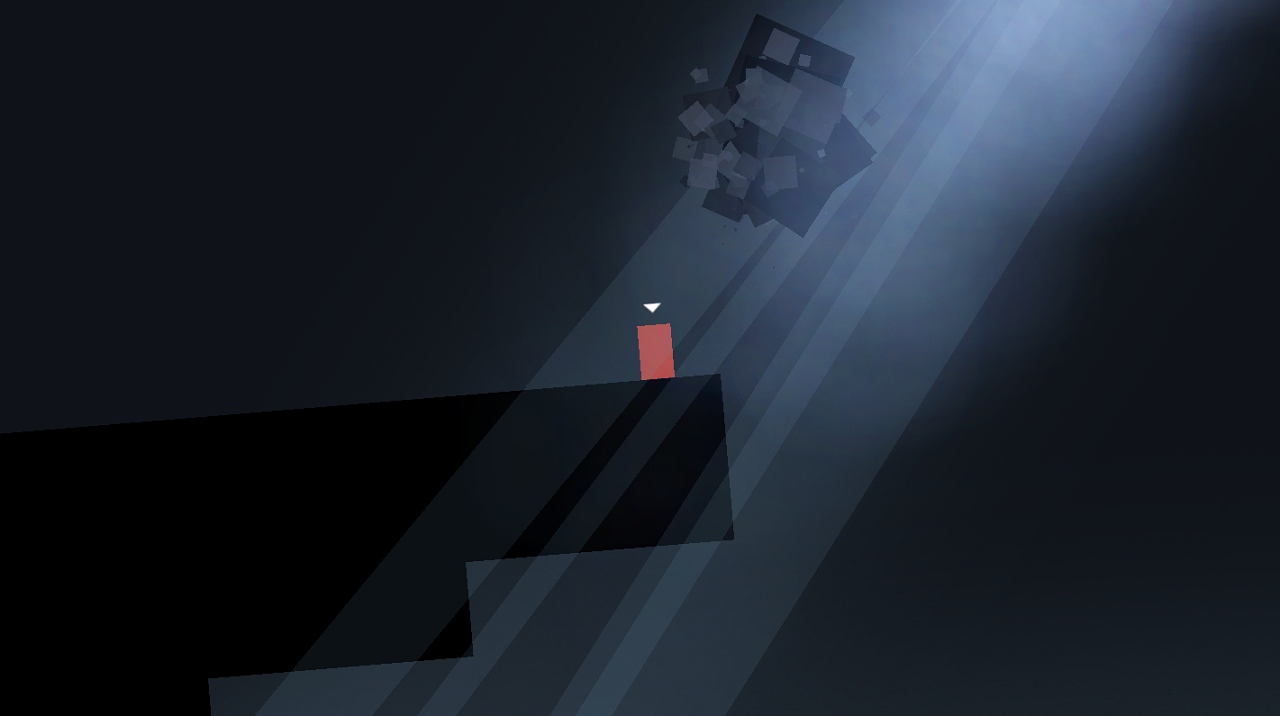Well, That Was Interesting is a little late this week. Blame the move to the redesigned site, and a shift in schedules. From now on, our regular look at the last week of interesting developments in geekdom will be published on Mondays, to allow us to enjoy our weekends. We intend to fill the gap by rolling out a regular opinion piece every week on a Sunday so that you still get something to read while you enjoy your coffee on a Sunday morning.
Well, a busy month filled with conventions, high-profile game releases, and various amounts of vacation time to fill in the gap. Yep, it’s October.
This month has also been marked by the growing mainstream recognition of GamerGate and online harassment of Women, Developers, and so-called Social Justice Warriors. As such the opinions on this topic are many and the side I fall on should come as no surprise to those who’ve been reading. This is a big world and we’re all allowed to have fun here - these are supposed to be videogames.
Demanding more transparency in regards to the relationship between journalists, publishers, and developers is one thing - but keep in mind that all of this ruckus will probably force publishers to take more control of their own messaging. Nintendo, Sony, Blizzard, EA, and many more all have their own streams, blogs, and YouTube channels that cover their games within a controlled environment. Companies within the videogame industry already restrict access to much of their daily operations - what happens when they completely close those doors?
In the end, I would rather all this focus and attention be turned on Net Neutrality - an issue that will have more of an impact on games than any amount of Doritos and progressive ideas - but humans love to practice avoidance culture and we’re latching on to any red herring topic we can in a hopes that the real issues will go away.
Nerd culture is destroying Silicon Valley
“I’d always hoped we were more virtuous than the mainstream, but it turns out we just didn’t have enough power to cause much harm. Our ingrained sense of victimization has become a perverse justification for bullying. That’s why I’m calling time on nerd culture. It’s done wonderful things, but these days it’s like a crawling horror of a legacy codebase so riddled with problems the only rational decision is to deprecate it and build something better.”
Nerd culture used to be a counter culture movement and a welcoming home for those who didn’t fit in with the traditional social roles. It was a culture of rejection populated by those who had been bulled for being different and well…Nerds. The nerd stereotype had long been a fixture in every form of popular media, often playing the comedic second fiddle to the outgoing and attractive lead roles. People used to hide the fact that they played Dungeons and Dragons or Magic in their parent’s basement, away from prying eyes.
However, something unexpected happened to change the perception of popular culture towards nerds, geeks, and dwebs – we won. Nerd culture reigns supreme in almost every facet of our society proper, and where it doesn’t lead it soon will as it pushes out the old guard for the new. But nerd culture was one that grew up as a victim and was by and large not exactly inclusive to outsides.
Pete Warden’s blog post on the prevalence of nerd culture in Silicon Valley is part of the larger narrative of GamerGate and the lack of inclusion in our tech industry. Warden argues that we need to open the doors more as studies show that less and less women and minority groups are entering into the tech fields that have largely become a boys club. Diversity brings innovation and perspectives; often you will be too close to the trees to see the whole forest.
On GamerGate: A letter from the editor
Over at Polygon.com, Christopher Grant discusses the recent swelling of distrust and open hostilities towards the gaming press and developers as part of the ongoing “GamerGate” movement that has taken the internet by storm (our own take on the subject will be published later today). The mainstream press has started to focus on gaming as a cultural phenomenon, and like it or not that attention isn’t going away. With the added attention comes a critique of the culture itself that has largely grown up as part of the internet culture, which has recognized to be a dehumanizing environment capable of immense verbal abuse.
While many within the movement claim that it is part of an effort to clean up corruption in the game industry it is clearly not, and a false equivalency has created the narrative that “both sides are trying to scream the loudest and nobody is budging” which further obfuscates what is really going on.
Here is a sample from his letter, but I encourage you to read the whole thing - regardless of which side you fall on.
“By politics, the voices calling for ethics reform really mean “progressive” politics. The so-called corruption that needs to be rooted out is a focus on “diversity” and the “magnitude of the human experience.” It should be no surprise that the outlets and voices specifically targeted by GamerGate are progressive. Baldwin was the first of several notable opportunists who, despite caring little for video games or video game culture, were more than happy to contribute to any movement that counted “SJWs” — that’s “social justice warriors,” for those of you out of the loop — as enemies. That “social justice warrior” is considered a pejorative at all speaks volumes about the motivations behind much of GamerGate and its fixation on progressive voices.”
“If GamerGate simply wants a conservative counter to what they consider a left-leaning gaming press, I think that’s great! That’s healthy! You don’t have to like the way we or any other outlet cover video games. If you truly believe there’s an army of people who reject “progressive” voices and outlets like Polygon and Kotaku, or who would prefer coverage “just about the games,” then I’d encourage you to start a new site for those readers. There’s no easier or better time to do it.”
Further Reading: The Unsafety Net: How Social Media Turned Against Women
In a head-to-head quiz, Google Now crushes Siri and Cortana
“There is nothing sweeter than pulling out your phone, asking it a question, and getting back the one obscure piece of information you need to settle a debate or win a drunken bet. Smartphones from Google, Apple, and Microsoft all offer a personal assistant who claims to be flush with knowledge drawn from around the web. But when it comes to providing useful answers, a new study shows there is a clear choice when you’re stumped and need to phone a friend.”
Your cellphone is a gateway to not only the internet, but the future of artificial intelligence and the relationship it will have with humans. Be it your first love Siri, or your Halo-influenced Cortana and the new upstart Google Now, all three are fighting to be your own personal assistant.
This personal assistant is already learning things about you to make itself more useful in your daily life, and there are countless programs which enhance their abilities. They can pool your gps data into your colander to learn your weekly schedule and behaviors to the point where they’ll start scheduling events without your knowledge in the assumption that you’ll continue your habits. If used properly they can help you become more efficient in your daily life and even help you lose weight or kick a bad habit.
These three applications are fast becoming part of a public - yet subtle - computer arms race to create a friendly and personal program that caters to the needs of the average consumer. They’ve advanced rapidly since their initial introduction a short few years ago, and their future is filled with almost limitless possibilities. A future reminiscent of the film Her may not be too far off and it is entirely possible that we’ll all by syncing into one large hive system that is able to handle multiple request at one time while simultaneously learning from our individual experience to build into itself.
However, we are living in the present and these systems are competing with each other and they are being studied by various groups to ascertain their effectiveness. It is interesting to see how they stack up with each other and you should check it out if you are interested in these integrated programs. Be sure to never give them they keys to the kingdom though, the Matrix is still plausible.
Visual Stimulation
Reddit, Redditors and Self-Promotion
Associated article: Is Reddit’s policy against self-promotion strangling the site’s culture?
Tomorrowland
Adam Savage Incognito at Comic-Con
Mass Effect 3 Ending: Tasteful, Understated Nerdrage
Extra Study Material
Louis Menand writes about copyright laws and their growing complexity in “Crooner in Rights Spat”
Mike Bithell wants developers to steal more from games “What to Steal: Shadow of Mordor’s Nemesis system”
Colin Tokes and the LinkedIn people are laughing at your profile “People Are Looking at Your LinkedIn Profile and They’re Laughing at You”
Sarah Laskow explores the history of nightlife and its origins in “New York Literally Invented Nightlife”



